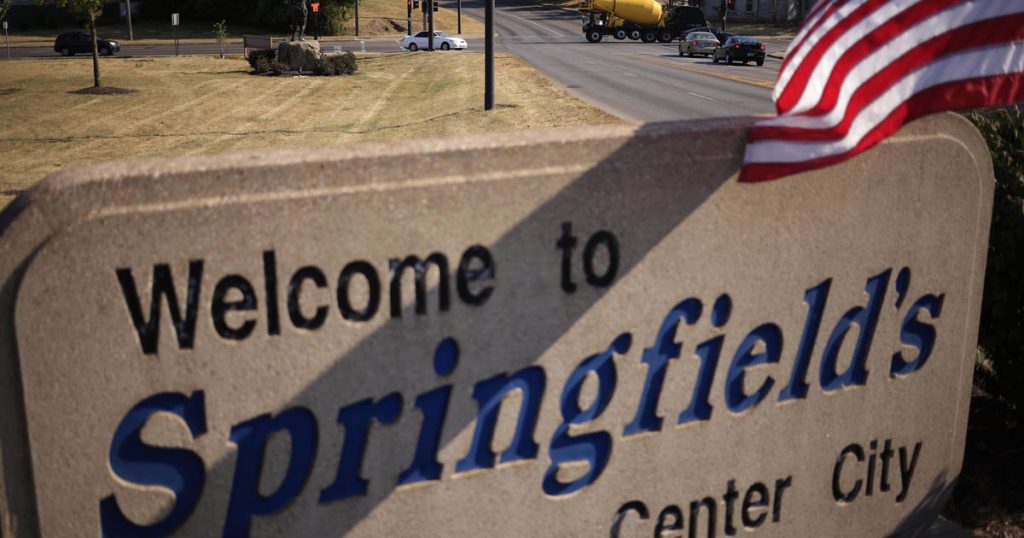Springfield, Ohio has been a focal point of controversy due to false claims made by Republican politicians about Haitian immigrants in the area. These claims, including accusations of pet theft and misinformation about infectious disease rates, have led to heightened tensions in the community. However, local health commissioner Chris Cook has refuted these claims, stating that reportable infectious diseases in the area have actually been decreasing. The influx of Haitian immigrants to Springfield has presented challenges for local health institutions, as many of the newcomers lacked access to basic public health care and were unfamiliar with the U.S. healthcare system.
Despite political discord, efforts have been made by local organizations, philanthropies, volunteers, and county agencies to address the health needs of the Haitian immigrant population in Springfield. Initiatives such as adding Haitian Creole interpreters, opening a refugee health testing clinic, and forming a coalition to aid the Haitian community have been implemented to provide essential care and support. Challenges faced by Haitian immigrants in their home country, such as political unrest, gang violence, and limited access to healthcare, have driven many to seek refuge in the United States. An estimated 12,000 to 15,000 Haitian immigrants reside in Clark County, with many living in Springfield under a federal program allowing temporary entry for humanitarian reasons.
Healthcare providers in Springfield, such as the Rocking Horse Community Health Center, have seen a significant increase in Haitian patients seeking care. The center has hired interpreters and patient navigators to accommodate these patients, who often require longer visits due to language barriers. Hospitals in the area have also experienced a surge in patients, with Mercy Health’s Springfield Regional Medical Center seeing high utilization of emergency, primary care, and women’s health services. Challenges such as limited access to supplemental food programs for newborns and communication issues during discharge have been identified and are being addressed by healthcare providers.
The increase in Haitian immigrants in the Springfield area has led to a rise in Medicaid enrollment, with many Haitian entrants qualifying for the program. While lower reimbursement rates present financial challenges for hospitals, efforts are being made to ensure that the healthcare needs of the immigrant community are met. Ohio Governor Mike DeWine has pledged financial support to help health centers and the county health department address the needs of the Haitian and broader community. Despite the challenges faced by the healthcare system in Springfield, efforts are being made to provide culturally sensitive care and prevent potential outbreaks of infectious diseases.
Efforts to address the health needs of the Haitian immigrant population in Springfield have been successful, with collaborations between local organizations and healthcare providers leading to improved access to care. As the town grapples with misinformation and political discord, healthcare professionals continue to work diligently to provide essential services to the immigrant community. The situation in Springfield serves as a microcosm of how immigration is reshaping communities in the United States, highlighting the importance of collaboration and cultural sensitivity in healthcare delivery. With ongoing support from local institutions and government officials, the healthcare system in Springfield is working to meet the diverse needs of its immigrant population while ensuring the well-being of the entire community.














